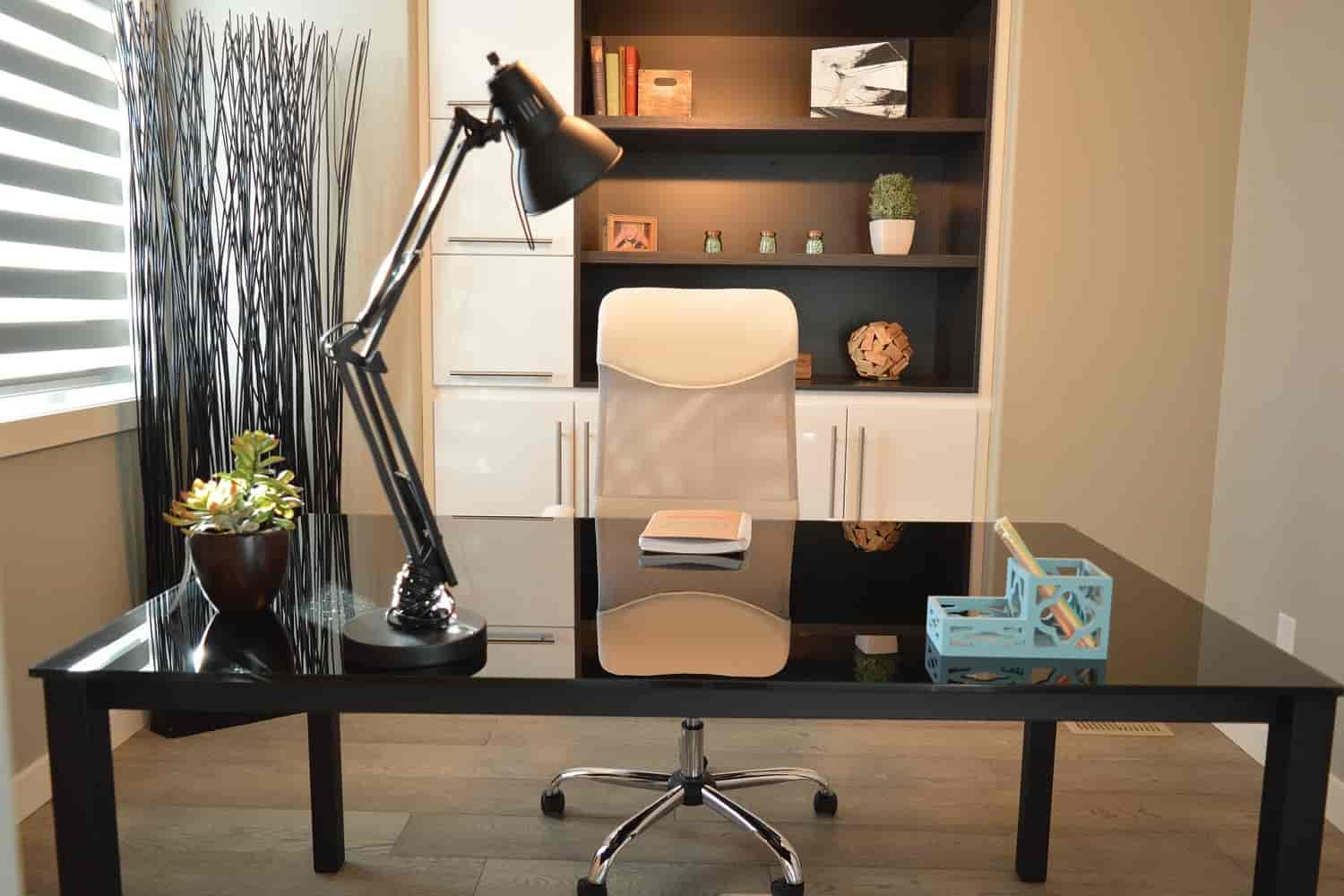If you’re starting your own small business or switching to a freelance career, odds are, you’re going to start off working at home.
There’s a lot of rules out there about how to make it work, and most of them I ignore:
- Start work at the same time every day (I never do)
- Follow a 9-5 schedule (I work for myself to avoid that)
- Always set up a home office (I live in a one bedroom apartment, that’s not happening)
- Never do errands or chores during the day (I do them all the time)
I don’t usually “follow the rules” when it comes to working from home, and it’s okay if you don’t either. But that doesn’t mean you and your business can survive without some kind of structure.
Even if you’re not one for strict rules, if you want to work from home while staying productive and healthy, you do need to follow a few guidelines.
1. When It’S Time To Work

One of the reasons I work for myself is because I don’t want to work 8 hours every day. Some days I do, of course. Some days I work more than that. But other days, I put in 2-3 hours of work, then spend the rest of the time reading, or practicing piano, or helping my husband edit his resumé.
The key to getting everything in just a few hours, though, is to do only work during work hours. Don’t check social media. Don’t put on a load of laundry. Don’t take a nap. Decide when your working hours are, filter out distractions, and focus on being as productive as possible.
2. Schedule Business keeping

One of the best productivity tricks I’ve discovered when working from home is to set aside a single day of the week for businesskeeping (like housekeeping, but for my business). That’s when I do my invoicing, strategic planning, email updates to clients, check in on contracts, and schedule my social media.
These are all important tasks, but none of them are billable, so it’s important that they don’t distract you from work that actually makes money. They’re also the sort of thing that it can be easy to forget, so having a day of the week regularly set aside for them means everything gets done on schedule.
3. Have A Dedicated Working Space
This winter, I discovered that the living room of my new apartment does not stay warm whenever the temperature dips below 50 degrees. Unfortunately, that’s where my desk is.
To avoid freezing, I ended up working either at the kitchen table or in bed with my computer on my lap. But because my brain didn’t associate those spaces with working, my productivity plummeted. I didn’t get back on track until I switched to spending a few highly-productive hours in a coffee shop every day.
When you try to work in a space that you mentally associate with relaxing, chores, or other activities, it’s easy to get distracted. But if you set aside a little space that you only use work working — even if it’s just a tray table at your couch — you’ll be much more focused and productive.
4. Use The Power Of Ritual

One of the best ways to get and stay focused is to divide your down time and your work time with specific rituals. Getting dressed, moving rooms, going for a walk, making a cup of coffee… all these little rituals can be used to signal your brain that it’s time to change gears. Use the power of simple ritual to divide your day, and you’ll find it’s much easier to both start working and switch off at the end of the day.
5. Be Clear About Your Needs With You Family/Roommates

If you live with other people who don’t work from home, you probably find yourself interrupted all the time. That’s not because your housemates want to interrupt you. But it can be hard for them to understand when you are and are not working (especially if you spend a lot of time on the computer for both parts of your day).
Explain early on when you can and cannot be interrupted — set specific business hours, for example, or establish that when you’re at your desk, you can only be interrupted for emergencies. If you know you have a big project that’s going to be distracting you all weekend, don’t wait for interruptions — be proactive and explain in advance that you need to focus.
Once your housemates understand your boundaries, it will be much easier for them to respect them.
6. Take Breaks

If you work in an office, there are natural breaks built into the day. You change rooms for a meeting, or go out to lunch, or chat with a co-worker for a few minutes. When you work from home, the only breaks that happen are the ones you make yourself, and it becomes far too easy to just push through and work all day.
That’s a sure recipe for burnout (and if you spend the whole day sitting, a whole host of health problems!) Do your brain, body, and business a favor by taking breaks during the day. Get up and stretch, go into another room (or out) to eat lunch, or schedule an hour of downtime in between projects.
Of course, you don’t want to use “taking a break” as an excuse to lose focus and spend all day watching Netflix. But you do want to give yourself a rest and a chance to move around. You’ll be much more awake and focused when you return to work.
7. Drink Water & Keep Healthy Snacks Around

When you work from home, the kitchen is only steps away and you don’t have a set lunch break. You can grab a snack at any minute, and before you know it you’ve gone through a bag of chips and suddenly realize there are three new empty soda can in the recycling bin.
Do your body and your mind a favor and remove temptation. Keep a glass of water at your desk and you’ll be far less likely to snack. Stop buying junk food that will stare at you all day, and instead stock up on healthy snacks. Eat lots of fiber and vitamins to keep you full and focused while you work. You’ll be more productive, concentrate better, and feel much healthier.
8. Learn How To Say “No”

One of the things I love about working for myself is the freedom to schedule a mid-day lunch with my husband or arrange to meet a friend for coffee. But the key here is schedule — I plan these things out in advance, and you should too. If a friend calls me and asks for a ride/chat/help moving furniture in 5 minutes, I say no, because I have a day of work I need to get done.
Also Read: How to Develop Healthy Habits When You Work from Home
Too many people ignore the “working” part of “working from home” and expect you to be available at the drop of a hat. That’s why learning to say “no” is one of the best things you can do for your productivity and your sanity. There’s nothing wrong with telling friends and family, “I’m working at the moment — do you want to plan something for later this week?”
Repeat as needed, and they’ll eventually get the message.














